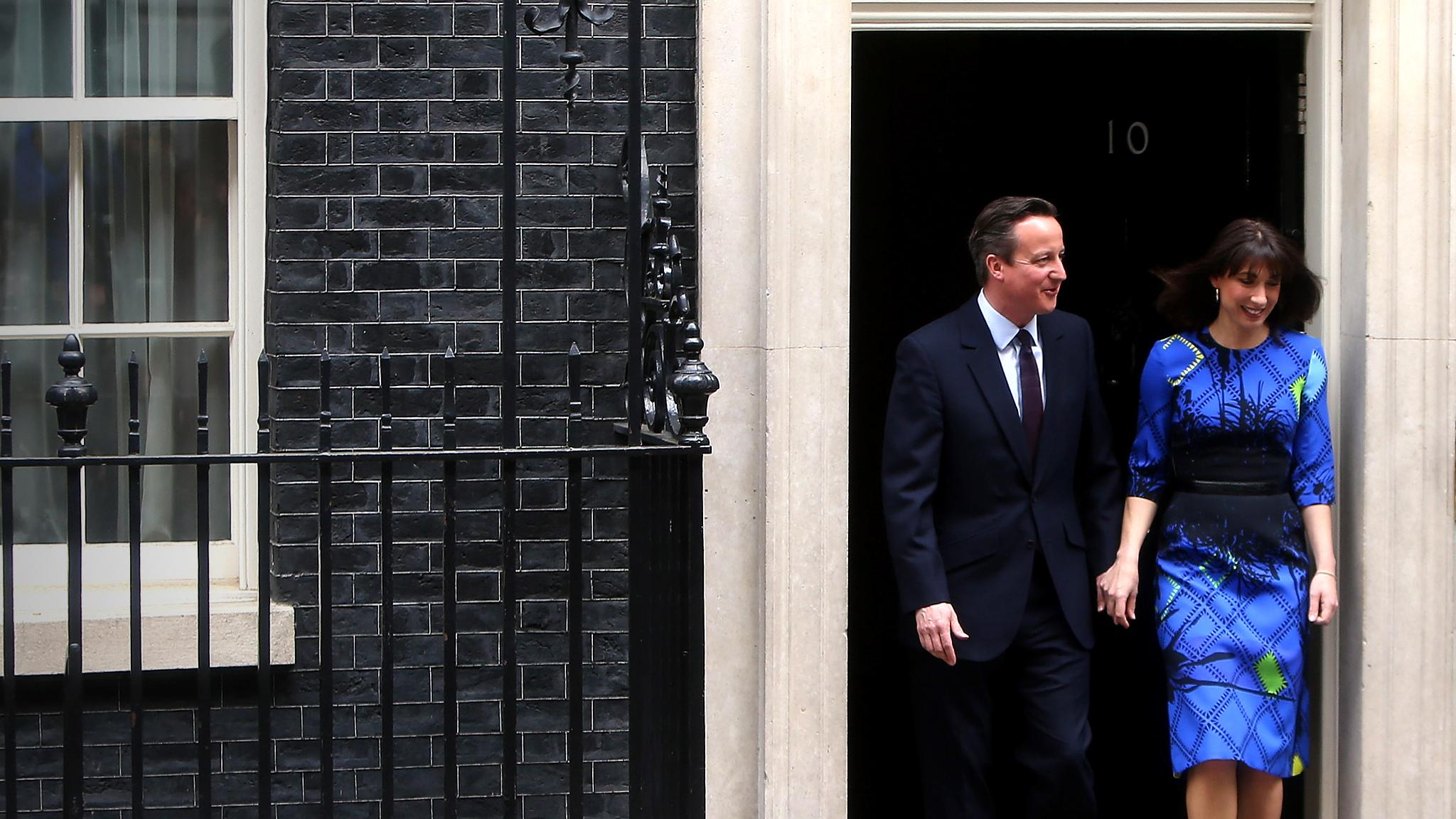Nigel Farage resigns as UKIP leader as the party vote rises
- Published
Nigel Farage: "Part of me is happier than I have felt for many, many years"
Nigel Farage has resigned as leader of UKIP having failed to gain the seat of Thanet South, losing out to Conservative candidate Craig Mackinlay.
But he said he would consider running for the job again when the leadership contest is held in September.
Speaking about his defeat, he insisted he had "never felt happier", with a "weight lifted off his shoulders".
UKIP has won a 13% vote share in the election and has one MP, Douglas Carswell, who held his Clacton seat.
It puts the party in third place behind the Conservatives and Labour in terms of share of the vote.
Mr Farage said the results proved there needed to be a change to the voting system.
"Personally, I think the first-past-the-post system is bankrupt," he said.
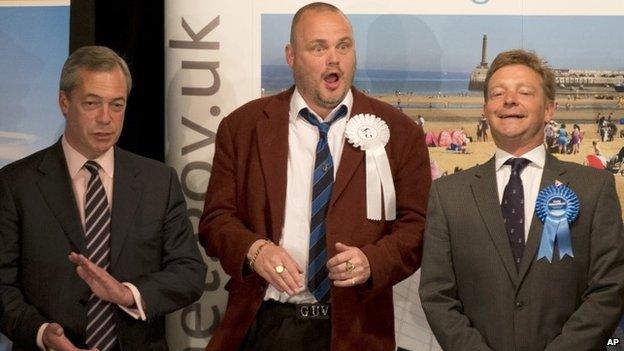
Mr Farage and comedian Al Murray both lost out to Conservative Craig Mackinlay in Thanet South
"It is bankrupt because one party can get 50% of the vote in Scotland and nearly 100% of the seats, and our party can get 4 million votes and just one seat."
He added: "For those reasons there are a lot of angry UKIP people out there. They're not giving up on UKIP, but absolutely determined that we get a fairer, more reflective system."

The Nigel Farage story
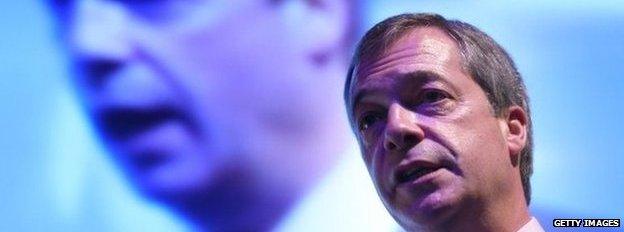
On the eve of polling day, UKIP leader Nigel Farage told interviewers he would be "for the chop" if he failed to get elected in the Kent seat of South Thanet.
And so it proved, when he lost out to Conservative Craig Mackinlay by almost 3,000 votes.
While the self-styled leader of the purple "People's Army" will mourn the death of his dream, Mr Farage will doubtless take consolation in the party's transformation under his stewardship.

Mr Farage claimed there was a new type of UKIP voter - predominantly working class, very much younger than before, and in particular young women now voting for the party.
He said he would keep his promise of standing down as leader following his defeat, but said he would not rule out the job in the future.
"There will be a leadership election for the next leader of UKIP in September and I will consider over the course of this summer whether to put my name forward to do that job again," he said.
He also said he would recommend Suzanne Evans, the deputy chairman, to be stand-in leader until the leadership challenge is complete.
UKIP failed to win the key target seats of Castle Point, in Essex, as well as Labour-held Great Grimsby. It also came third in Thurrock - another high priority seat.
Mark Reckless also lost out to Tory candidate Kelly Tolhurst in Rochester and Strood by 16,009 votes to 23,142.
Mark Reckless: "Today a majority of people in Rochester & Strood have decided to hire someone else"
He had represented the Kent constituency for the Conservatives from 2010 until switching allegiance to UKIP and beating Ms Tolhurst at last November's by-election.
Mr Reckless told reporters: "I always knew what I was doing was a risk but nobody should underestimate UKIP's achievement."
- Published8 May 2015
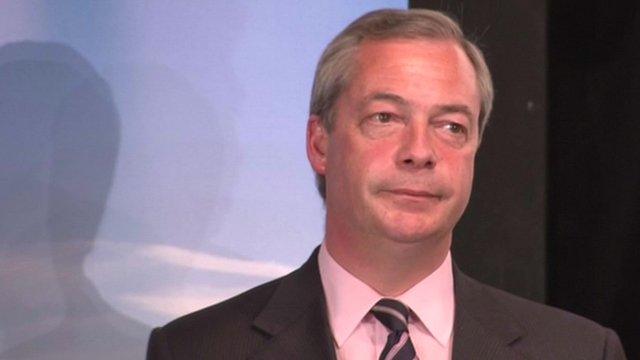
- Published5 May 2015
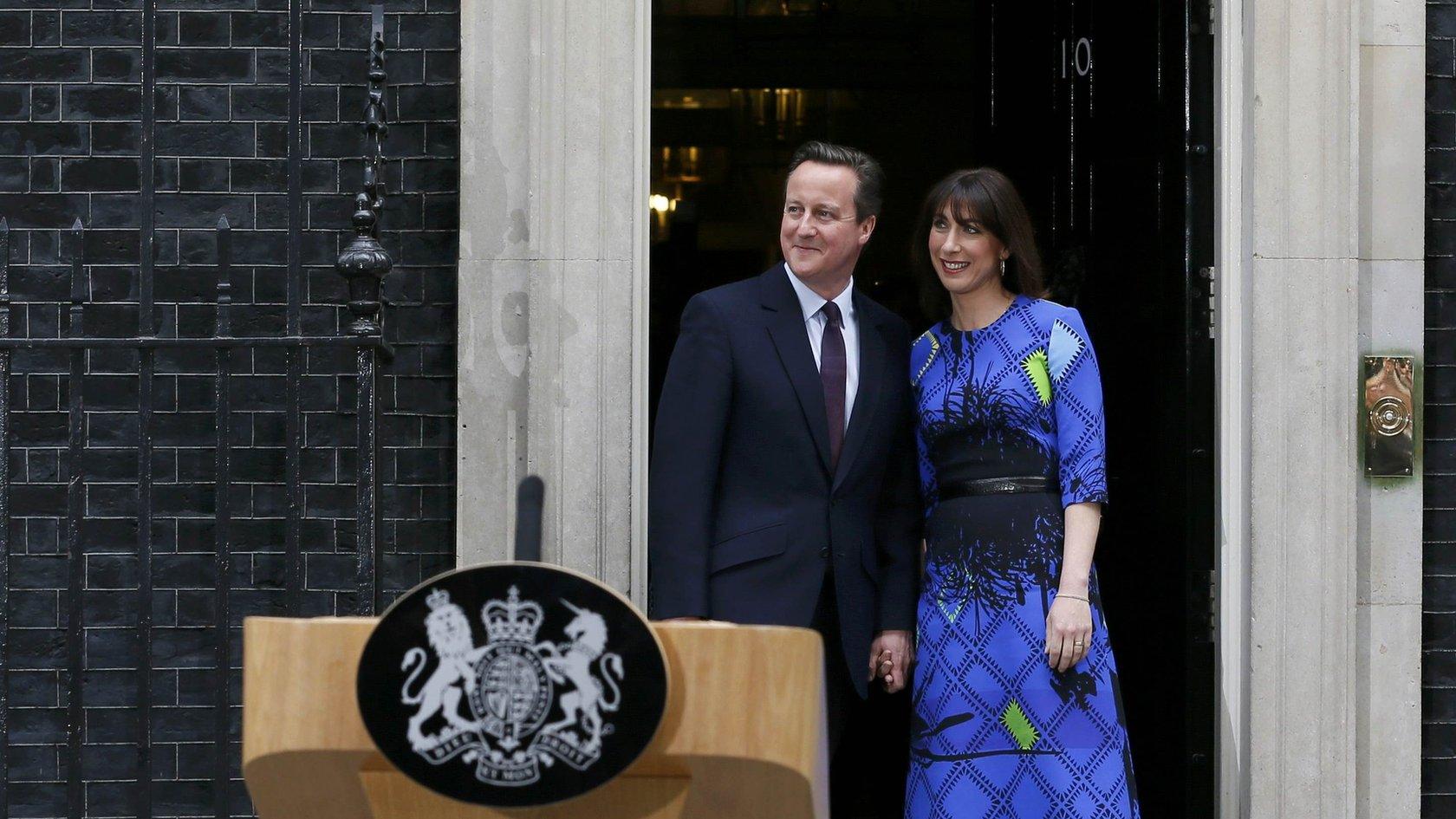
- Published8 May 2015
